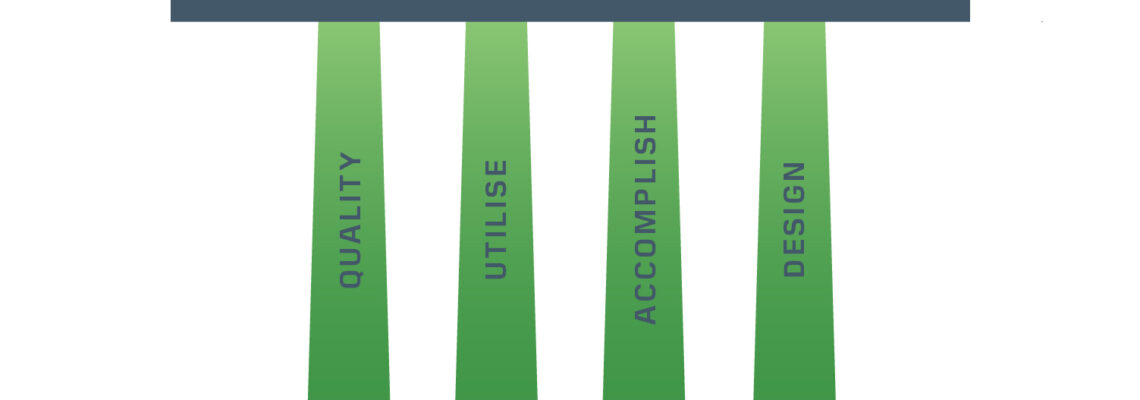
5 Pillars of Effective Healthcare Project Management
Healthcare technology has changed from a time when all the thoughts and efforts went into who, what and where. Today, the focus is on how. Healthcare projects today require excellent project management skills to ensure that the delivery of healthcare does not get delayed or jeopardised by inefficiencies in execution. To learn more about what makes for an effective healthcare project, read on.

Planning and Scheduling
Effective healthcare project management begins with planning and scheduling. Without a well-planned and executed schedule, projects can quickly become bogged down.
There are a few key elements to keep in mind when planning and scheduling a healthcare project:
- Define the scope of the project. What are the goals and objectives? What needs to be done in order to complete the project?
- Create a detailed work plan. This should include tasks, deadlines, assigned resources, and any other relevant information.
- Schedule regular check-ins with all project stakeholders. This will help ensure that everyone is on track and that any issues are identified and addressed quickly.
- Be prepared for unexpected delays or changes. No matter how well you plan, there will always be some element of uncertainty in any healthcare project. Build some flexibility into your schedule to account for this.
By following these simple tips, you can ensure that your healthcare project stays on track from start to finish.
Communication
There are many different types of communication that are important in healthcare project management. In general, effective communication is key to successful project management in any industry. However, there are some specific considerations for healthcare projects.
First, clear and concise communication is essential. This is especially true when communicating with clinicians, who may not have a lot of time to read long or complex messages. It’s also important to be aware of the different ways that people prefer to communicate. Some people prefer face-to-face conversation, while others prefer email or text messages.
Second, it’s important to establish clear lines of communication from the start of the project. That way, everyone knows who to go to with questions or concerns. It’s also helpful to set up regular check-ins or update meetings so that everyone stays on the same page and no one falls behind.
Third, effective communicators know how to listen as well as talk. In healthcare projects, it’s especially important to listen to clinicians and other stakeholders to understand their needs and concerns. Only then can you develop solutions that will actually work for them.
Finally, timely communication is critical in healthcare projects. Delays can have serious consequences, so it’s important to keep everyone informed of progress and any changes that might affect the timeline. Having a business phone system makes it easier for people to connect with each other for urgent and sensitive communications.
Risk Management
Risk management is a critical component of effective healthcare project management. By identifying and addressing risks early on, project managers can help prevent them from becoming bigger problems down the road.
There are a few key steps to effectively managing risk in healthcare projects:
- Identify potential risks. This includes looking at both the internal and external factors that could impact the project.
- Analyse the risks. Once you’ve identified the risks, it’s important to assess how likely they are to happen and what their potential impact could be.
- Create a risk management plan. This plan should outline how you will address each risk, including who is responsible for each task and what contingencies are in place in case something does go wrong.
- Monitor and adjust as needed. Risk management is an ongoing process, so it’s important to regularly check in on the status of risks and make changes to the plan as necessary.
Quality Assurance
Quality assurance is a critical component of effective healthcare project management. By ensuring that all project activities meet or exceed quality standards, quality assurance helps to ensure the successful completion of projects and the provision of high-quality care to patients.
There are a number of key strategies that can be used to effectively manage quality assurance in healthcare projects:
- Define quality standards and objectives early on in the project planning process. By doing this, you will be able to ensure that all project activities are aligned with these standards and objectives.
- Establish a system for monitoring and assessing project progress against quality standards. This system should be designed to identify any areas where quality standards are not being met, so that corrective action can be taken.
- Implement quality control measures throughout the course of the project. These measures should be designed to prevent errors and defects from occurring in the first place and to identify any that do occur so that they can be rectified quickly.
- Conduct regular reviews of project progress with all stakeholders. These reviews should assess whether quality standards are being met, and identify any areas where improvements could be made.
By following these strategies, you can help ensure that your healthcare projects are delivered successfully and that patients receive high-quality care.
Tracking and Monitoring
Healthcare project management is a complex and challenging field. To be successful, healthcare project managers must be able to track and monitor the progress of their projects.
There are a number of different ways to track and monitor the progress of healthcare projects. One popular method is to use software tools. These tools allow project managers to create detailed plans and schedules and then track and monitor the progress of their projects.
Another popular method for tracking and monitoring healthcare projects is to use earned value management (EVM). EVM is a technique that uses mathematical formulas to track and monitor the progress of projects. EVM can be used to track both cost and schedule performance.
Whatever method or methods you use to track and monitor your healthcare project, it is important that you have a clear understanding of what data you need to collect, how often you need to collect it, and how you will use it. Without this information, it will be difficult to effectively manage your project.
Conclusion
While many factors will inevitably play into a healthcare project, there are a number of fundamentals that need to be considered to ensure the project’s best chance for success. The five pillars discussed here will ensure that each undertaking begins on the right foot and has the tools it needs to stay on track to completion.


